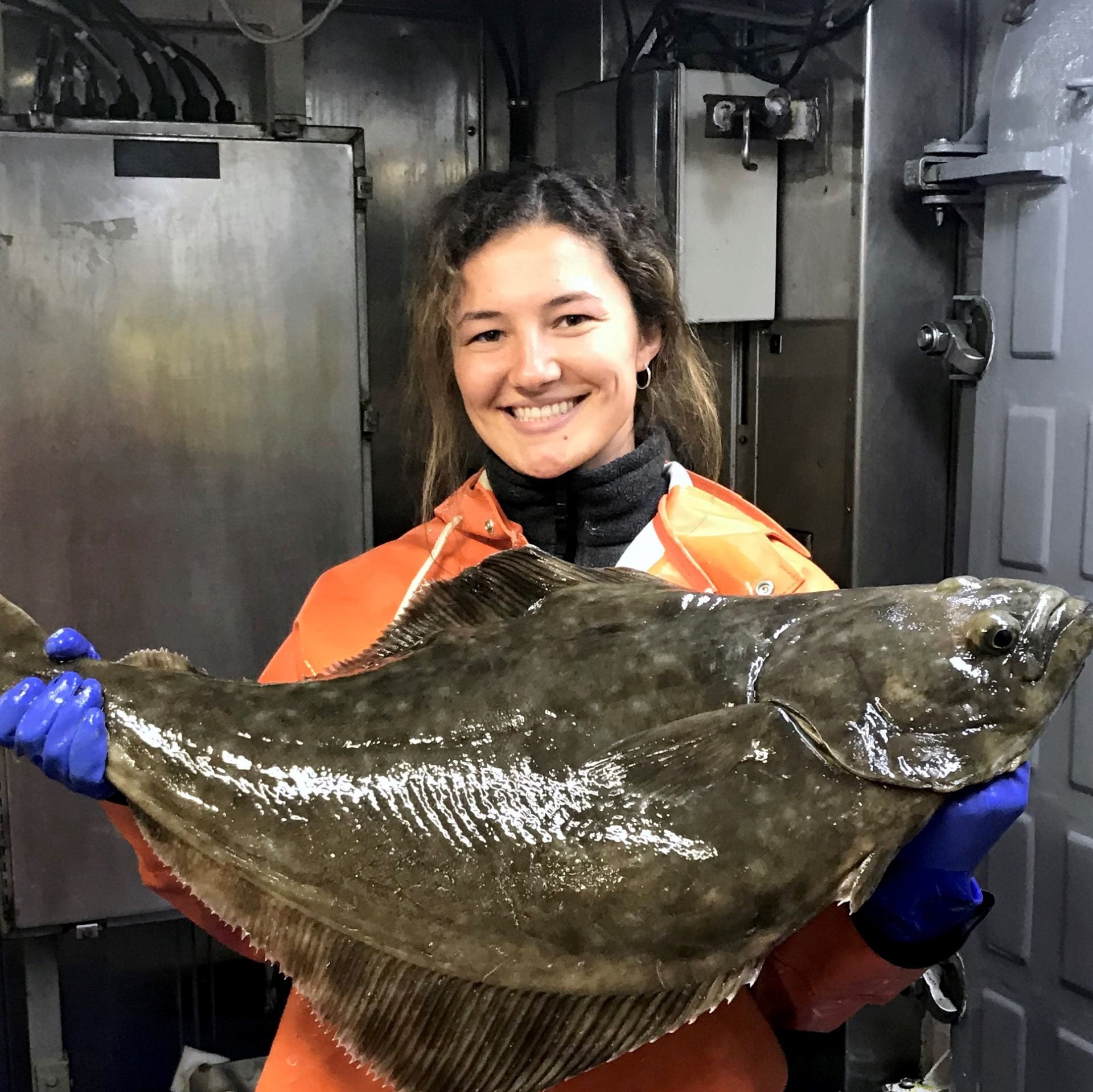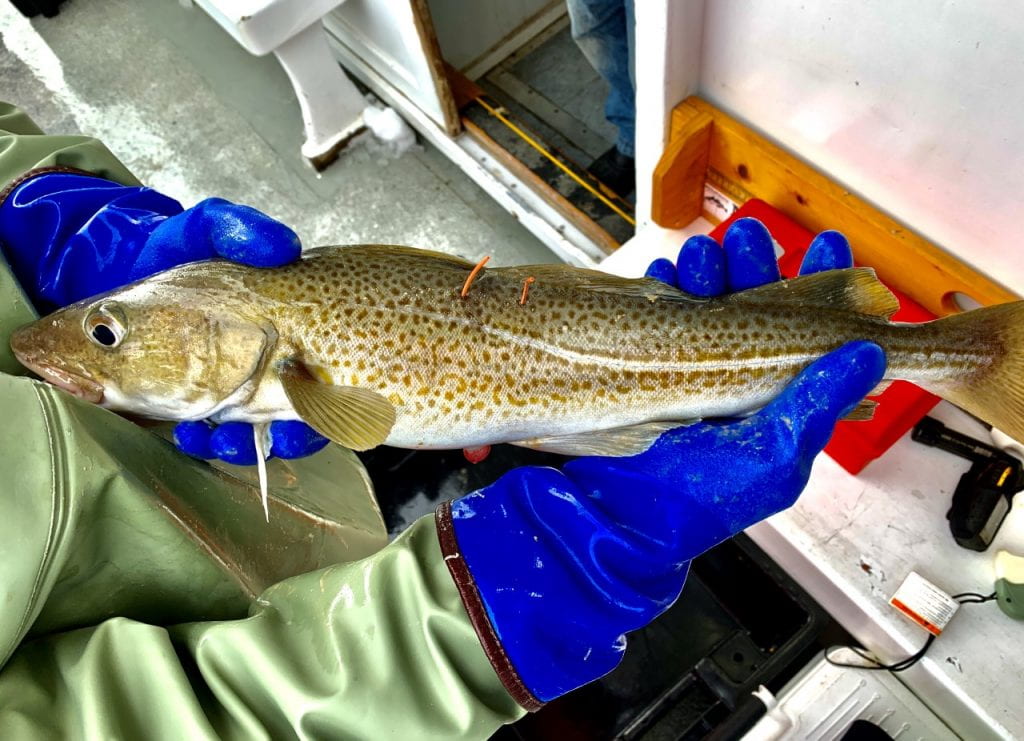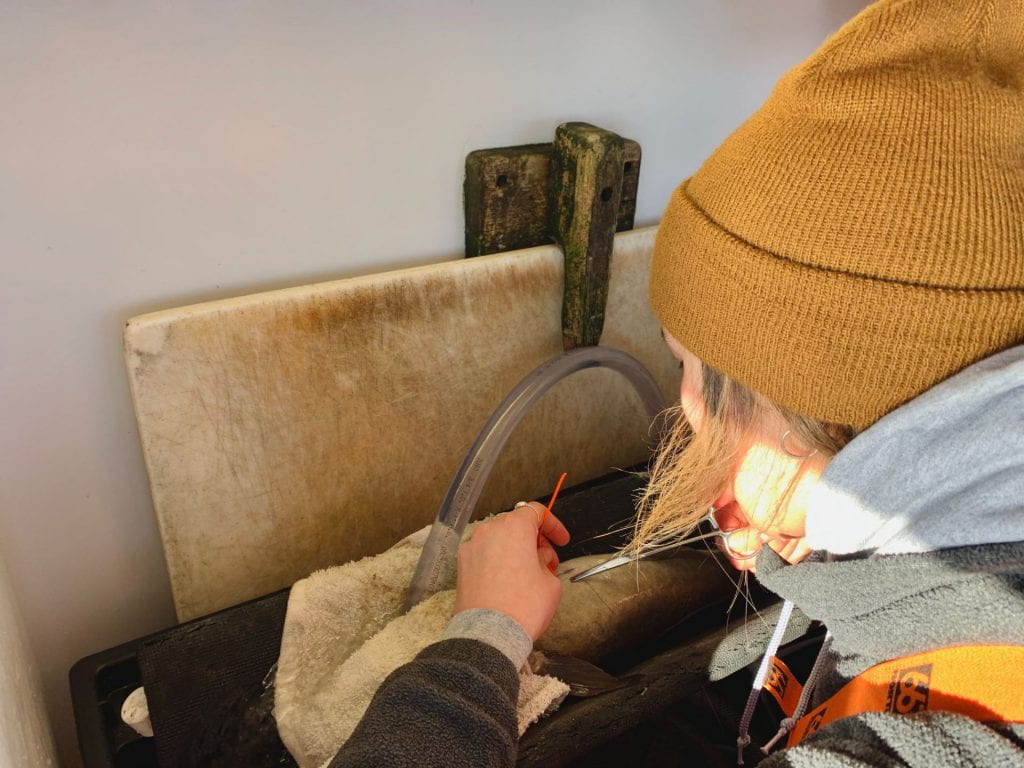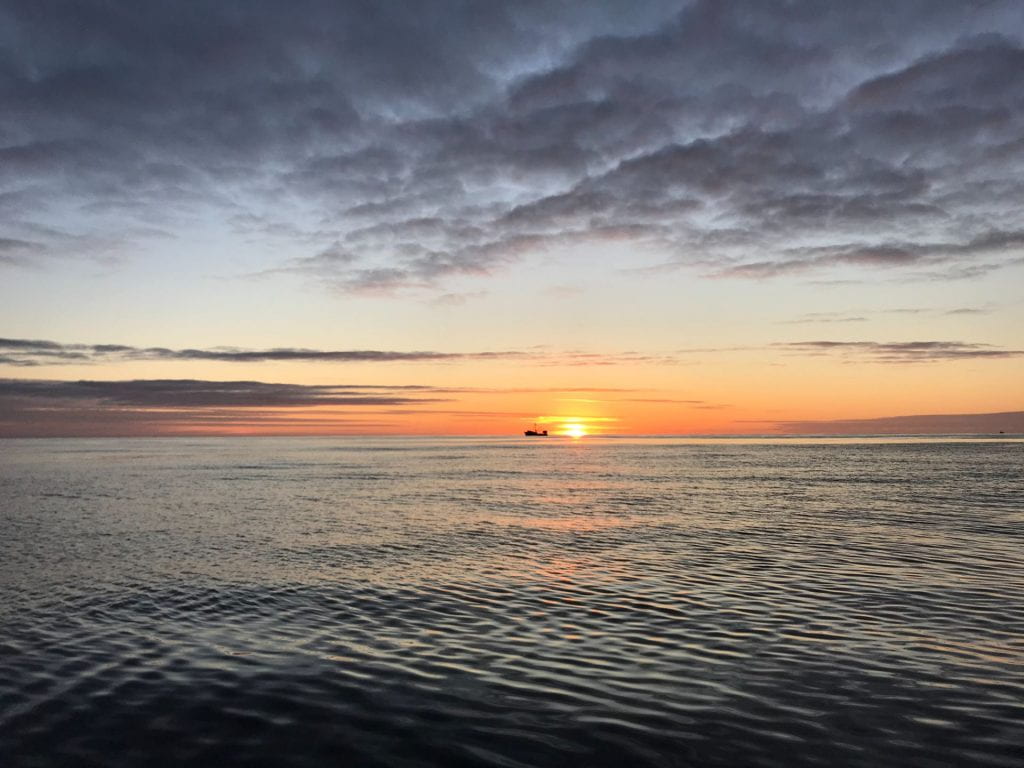This week we are spotlighting the work of Alison Frey, a master’s student in the SMAST program. Frey graduated from the University of Rhode Island with a bachelor’s degree in Marine Biology. She then worked as a biological technician at the NOAA NMFS Northeast Fisheries Science Center in Narragansett, Rhode Island, for a year prior to starting graduate school at UMass Dartmouth. Frey is from Acton, Massachusetts but currently lives in Newport, Rhode Island.
“My research is focused on answering questions about Atlantic cod (Gadus morhua) in Southern New England,” Frey says. “Atlantic cod is an economically, ecologically, and culturally important species, and not much is known about the group occupying Cox Ledge in Southern New England. Funded by the Bureau of Ocean Energy Management (BOEM) and in collaboration with NOAA NMFS Northeast Fisheries Science Center (NEFSC), Mass Dept of Marine Fisheries (DMF), The Nature Conservancy (TNC), Orsted, the University of Rhode Island (URI), and others, my team and I are using acoustic telemetry methods to study the habitat use and spawning behavior of these cod.”


Atlantic cod (Gadus morhua)
“Essentially, we head out offshore during the known winter spawning season, catch large, reproductively mature cod, and insert acoustic transmitting tags inside of their abdomen. These tags release unique pings which are received by 10 hydrophone buoys we have deployed around our study area. After downloading the data from the receivers, we can see which fish were where and for how long. The high spatiotemporal resolution of these data allows us to draw conclusions about where these fish like to live, spawn, and also gives us a sense of their migration patterns and spawning site fidelity year after year.”
Frey’s work is complicated by her team’s study site being directly within an offshore wind energy lease area. “This area has been selected for the development and construction of over 100 wind turbines which will offer New England a new, renewable, energy source in the near future,” Frey says. “With all the excitement and promise of offshore wind energy development, it is still poorly understood how the construction and maintenance of this large wind farm will affect the native fish species, like Atlantic cod. The goal of my work is twofold: first to broaden our knowledge of these Southern New England cod and answer questions like where do these fish live exactly? How long do they live here? What is their preferred thermal range? Do they return to the same site year after year to spawn? This information will be important for management, conservation, and setting fishing regulations. And second, our project aims to offer a baseline perspective of how these fish are using the offshore wind lease area so we can better understand the ecological impacts of offshore wind energy development.”

Alison surgically inserting an acoustic tag
Frey’s work has broad applications that can help serve the environment and the community as a whole. “Fisheries oceanography, in general, is closely tied to the management and economics of the fishing industry, conservation efforts, biology of fishes, and climate change,” she says. “The interdisciplinary nature of fisheries oceanography has always intrigued me. With the cod project, the new addition of interactions with offshore wind energy development specifically sparks my interest. I think it will be very interesting to see how the cod respond to the offshore wind farms and any potential secondary effects on the fishing industry.”
Despite the rewarding nature of the outcomes of Frey’s work, this type of research is not without difficulties. “The most challenging aspect of my work is trying to tag and maintain an acoustic telemetry array during the winter field season, but this is arguably the most fun aspect as well,” she says. “My team and I have had some very early, long, bone-chilling days at sea with our partnering fishermen trying to hook and tag cod. We always make the most of it though and appreciate the opportunity to get away from the desk and out onto the water.”

Sunrise over Cox’s Ledge
Frey is most proud of the collaboration that occurred within this complex project. “Local RI fishermen have been critical in the planning and logistics of this work from site and gear selection to helping us on tagging trips. The project team is also comprised of several different universities, institutions, and government agencies and I think this work is a great example of the power of collaboration. I hope the results from this cod study are informative for characterizing fisheries interactions with offshore wind energy development. I also hope we are able to answer questions about Southern New England cod which will help management and conservation efforts in rebuilding and protecting Atlantic cod populations.”
In her free time, Frey enjoys surfing, skiing, practicing yoga, and spending time outdoors with friends and family.
She is planning to graduate in December 2021. “Upon finishing my degree,” Frey says “I hope to continue doing fisheries research either at the state or federal level or within the private sector.”
To follow along with the cod project, you can follow Alison on Twitter at:
@AliFrey5

Congratulations Alison on your involvement in such important research.
Great work effectively reported.